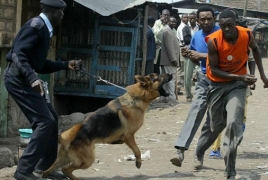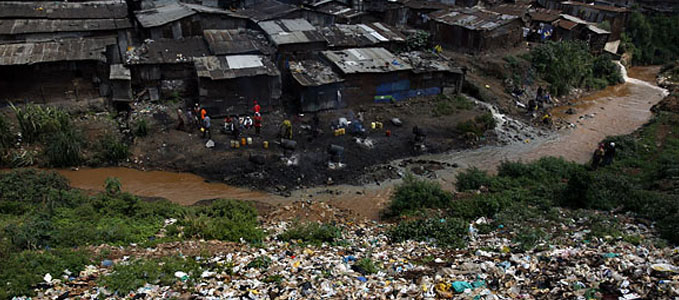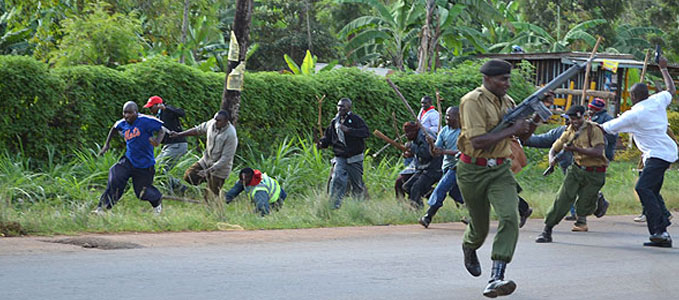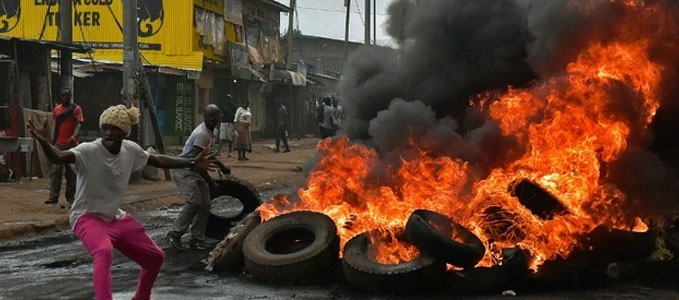
The Mungiki originated as just another of the many machete-wielding ethnic gang that plague many African countries. According to one of Mungiki's founders, the group began in the late 1980s as a local militia in the highlands to protect Kikuyu farmers in disputes over land with Maasai and with forces loyal to the government, which was dominated by the Kalenjin tribe at the time. Mungiki arguably has its roots in discontent arising from severe unemployment and landlessness arising from Kenya's rapid population growth, with many disaffected unemployed youth attracted to an organization giving them a sense of purpose and cultural and political identity, as well as income.
The word Mungiki means "multitude" in the Kikuyu language.

They sect rejects Westernisation and all things that they believe to be trappings of colonialism, including Christianity. The ideology of the group is characterized by revolutionary rhetoric, Kikuyu traditions, and a disdain for Kenyan modernization, which is seen as immoral corruption. Mungiki is often referred to as Kenya’s Cosa Nostra, Yakuza, or Kenyan Mafia due to its organization. At first, the faction advocated female circumcision and tobacco sniffing. It later adopted rituals like swearing oaths and wearing dreadlocks, like the Mau Mau rebels who fought the British colonial government before independence in 1963.
Security experts say gang members swear an oath of secrecy not unlike the Italian mafia, and can leave the gang in only one way -- by dying. Any betrayal is punishable by death.

The sect, which was banned in 2003, was on a revenge mission after war broke out in the Rift Valley following the disputed 2007 elections. (General elections were held in Kenya on December 27, 2007, electing the President, National Assembly and local councils. The presidential elections were a two-horse race between incumbent Mwai Kibaki, running on a Party of National Unity (PNU) ticket and Raila Odinga, leader of the Orange Democratic Movement (ODM). Kibaki was declared the winner with 46% of the vote, and was sworn in at State House on 30 December. However, opposition leader Raila Odinga also claimed victory, and civil unrest broke out resulting in the deaths of several hundred people and the displacement of up to 600,000. This was ended by the National Accord and Reconciliation Act, which led to Odinga being appointed as Prime Minister.)
The Mungiki sect is believed to be deeply involved in the massacre. Several Mungiki leaders were killed in mysterious circumstances or disappeared after the post-election violence that was followed by a period of relative peace
The group has links to politicians and powerful Kikuyu families and is suspected of colluding with crooked police officers in exchange for a cut of their extortion schemes. Initially confined to operating in the shoe-shine and hawking industry, Mungiki gang members are now said to be in charge of major markets, including Nasher square, one of the biggest in Nakuru county.

Current President Uhuru Kenyatta was accused by the International Criminal Court of financing Mungiki’s retaliatory attacks. But, the court has since dropped the charges.
Today, with a year to go until Kenya’s next elections, security forces express fears over the re-emergence of the sect. The country’s police chief issued an alert about a plot to reinvigorate the criminal gangs ahead of the polls.

